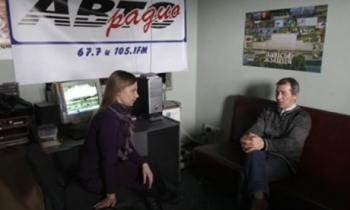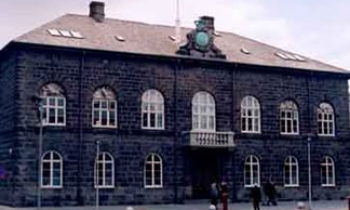Copenhagen/Oslo - Hopes rose Friday in the Nordic region that the storm triggered by the controversial publication of cartoons of Prophet Mohammed had largely subsided.
Observers highlighted that the religious mourning ceremonies of Ashura, which commemorate the anniversary of the martyrdom of Prophet Mohammed's grandson Imam Hussein, passed Thursday without any reports of attacks on Danish or Norwegian interests similar to those a week earlier.
Angry mobs last weekend set fire to the Danish, Norwegian and Swedish embassies in the Syrian capital Damascus, and Beirut, Lebanon and later also attacked several embassies in Tehran.
'That may suggest that the steam is running out of the pressure cooker, and that some of the many messages sent out are beginning to have an effect,' former Danish ambassador to Syria, Ole Wohlers Olsen, told the Berlingske Tidende newspaper.
The tone of sermons and messages at Friday prayers across the Muslim world would likely be a major factor in how the crisis unfolds.
In Iran, senior cleric Ayatollah Ahmad Khatami during the prayer ceremony called on Iranians to continue their protests, but not to attack embassies.
'The fury by the people is holy and protests should indeed be continued ... but the protesters should seriously refrain from attacking the embassies,' Khatami, an ultraconservative unrelated to former reformist president Mohammad Khatami, said in Tehran.
Hundreds of people also took to the streets in Afghanistan following the weekly ceremony, but no violence was reported. Clashes over the cartoon issue had earlier in the week claimed a number of lives in Afghanistan.
In Malaysia, the first significant protest since the row erupted took place outside the Danish embassy in Kuala Lumpur. Prime Minister Abdullah Ahmad Badawi, who also is the chairman of the 57-nation Organization of the Islamic Conference said however that Islamic and Western civilizations alike needed to curb extremists in their midst.
Speaking at an Islamic conference in the Malaysian capital, Abdullah urged deeper understanding and respect.
'We must put a stop to the mockery of any religion or the sacrilege of any symbol held sacred by the faithful,' he said.
Also among those who have called for reconciliation but also condemned the publication - and republication of the cartoons - was UN Secretary General Kofi Annan.
In the Norwegian capital Oslo, Vebjorn Selbekk, chief editor of Christian weekly Magazinet that recently reprinted the Danish newspaper Jyllands-Posten's Mohammed caricatures, apologized to the Muslim community Friday for his move.
'I concede that I did not fully comprehend how harmful the publication of the facsimile was,' Selbekk said.
Selbekk attended a joint news conference with the leader of the Norwegian Islamic Council, Mohammed Hamdan.
Hamdan accepted the apology on behalf of the Islamic community, and urged Muslims not to participate in unauthorized demonstrations or flag burning.
Norwegian Foreign Minister Jonas Gahr Store welcomed Selbekk's apology and said the meeting had not been arranged by the government.
Since the crisis erupted, Danish diplomats have worked round the clock to garner support for the government's line that it protected both freedom of speech and freedom of religion, and had no influence over the Jyllands-Posten newspaper.
Next week, European Union foreign policy chief Javier Solana is due to visit Saudi Arabia, Egypt, Jordan and the Palestinian Territories to discuss further measures to defuse the crisis.
A Swedish rightwing group threatened to draw Sweden into the maelstrom after publishing a cartoon of the Prophet Mohammed on its website.
The Swedish Foreign Ministry and security service contacted the Internet service provider Thursday, and the site was temporarily shut down. On Friday it was back online - minus the cartoons.
Jimmie Akesson, leader of the anti-immigrant Sweden Democrats (SD), said the party had decided to remove the cartoons after 'appeals from countrymen.'
The Danish Foreign Ministry maintained travel alerts for some 20 Muslim nations, while Danish businesses including food producer Arla still suffer from consumer boycotts.
Mohamed Adil, head of the French supermarket chain Geant in Saudi Arabia, that the consumer boycott will last at least six months in the region, according to trade journal ITP Business.









